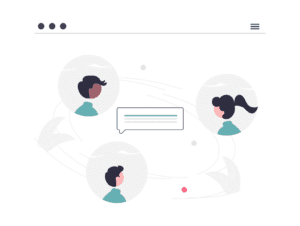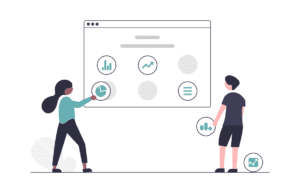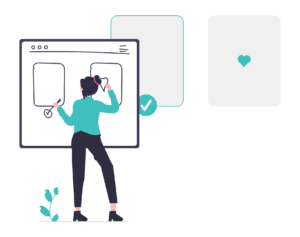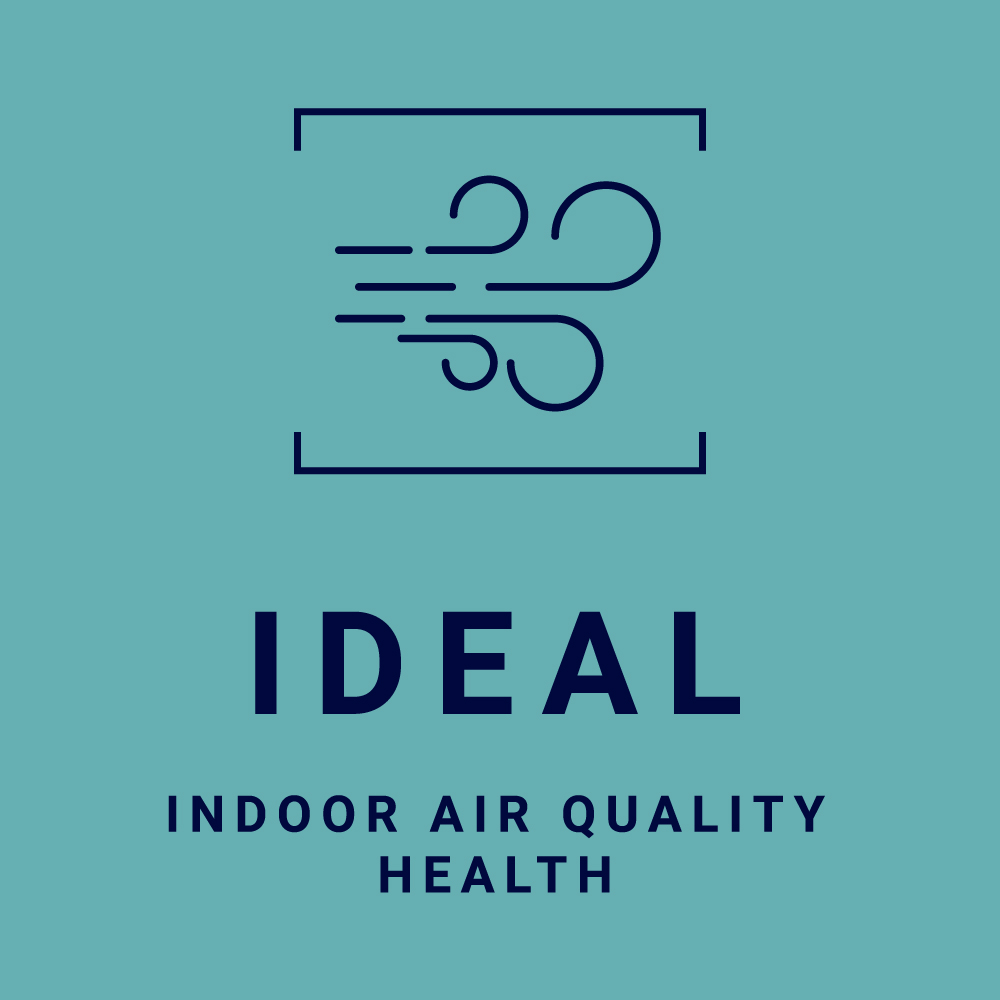WORKING GROUPS (WG)
Cluster IDEAL has created 8 Working Groups (WG) on practical topics of share interest in order to promote collaborations, agreements and synergies among the projects to increase and enhance the project outcomes.
WG1: Science translation for policy and practice (SynAirG, K-HealthinAir)
The Working Group 1 “Science translation for policy and practice”, aims at maximising the impact of the research of the IDEAL Cluster projects, producing evidence-based strategies and recommendations addressed to policy makers to ensure the timely translation of indoor air quality research results into policy and practices, contributing to improve the health and wellbeing of all population.
The working group will develop policy briefs and recommendations addressed to European and National authorities, to integrate the results of the cluster into policy strategies and initiatives, and influence policy-makers priorities, ensuring a timely uptake of the research.

WG2: Data analysis/management and protection (TwinAir, INQUIRE)
The aim of WG2 is to provide a discussion platform for various EU projects dealing with Indoor Air Quality (IAQ) management. This platform aims to facilitate the exchange of experiences and stimulate cooperation across projects within the topics of data analysis and management. Additionally, WG2 plans to contribute to the harmonization and standardization of data collection techniques across EU labs. The group also seeks to cooperate and exchange ideas on FAIR data provision and the development of sustainable data provision methods. WG2 also aims to collaborate with organizations like IPCHEM to promote existing data models and formats and improve their quality through cooperation.

WG3: Communication and Dissemination (InChildHealth, LEARN)
W3 will Develop and implement communication and dissemination planning to ensure that all projects’ results reach the appropriate audience and achieve the expected impacts.
- Monitor the impact of dissemination and adapting strategies and methodologies as deemed necessary.
- Define the roles and responsibilities of cluster partners to guarantee the smooth running of the dissemination activities in numerous areas.
- Coordinate with external stakeholders (patients, health care professionals, regulators, policy makers), as well as other related projects and institutions to ensure a high reach of communication activities.
To do so, it was defined the follow primary objectives:
- Influencing key policy stakeholders on IDEAL cluster’ scope, e.g.: domains of air quality, public health, healthy (indoor) environments and protection
- Increasing awareness about the cluster’s scope and initiatives
- Spreading the results of the individual projects at the institutional and academia levels
- Engage in a fruitful dialogue with the EC to promote main achievements of the cluster

WG4: Guidelines (SynAir-G)
DIN (German Institute for Standardization) is a member of the SynAir-G project consortium and leads the WG 4 activities of the IDEAL cluster, which revolve around standardization.
Standardization is an effective instrument for the knowledge transfer of research project findings and for establishing innovations on the market as it makes contents more accessible to an interested audience. Standardizing a content can itself serve as a proof of quality, as experts of different fields agreed on it being innovative and relevant enough, discussed it and finally agreed upon its details, all while taking into account the guidelines of the standardization body/organization.
Within WG 4, DIN will initially assess standards and standardization documents already published or under development on topics related to the IDEAL cluster’s activities. The outcome of the assessment will serve as a living repository for the project partners throughout the project. Furthermore, through comparing the assessment with standardization needs derived within the project, gaps in the existing standardization landscape may be identified. Topics not covered by existing standardization committees can become the basis for standardization activities to be initiated by the IDEAL cluster, such as a CEN Workshop Agreement (CWA). By linking the individual standardization activities of the IDEAL cluster’s research projects within WG 4, the project partners will be able to avoid possible extra work and duplication. Furthermore, collaborating may identify synergies between the projects that otherwise might would have remained undiscovered.
The underlying goal of WG 4 is to achieve an advantage for society by disseminating possible innovations of the IDEAL cluster as quickly as possible with means of standardization, if applicable.

WG5: Sensors (INQUIRE)
In relation to WG5 Sensors, here are the purpose and objectives:
The WG5 Sensors has representatives from the 7 HE projects, and within their members they cover a wide range of expertise as sensor assessment and application, aerosol chemistry and measurement, personal health and indoor exposure, photonics, nanocharacterization, sensor development and data management and visualization.
The purposes of the group are:
- Raising awareness about indoor air quality, the importance of monitoring the indoor environment, and the role of indoor air quality on heath
- Increasing the acceptance of air quality data collected using novel sensor technologies as complementary to official measurements.
- Increasing the technical capacity of sensor technologies for its application on indoor air quality monitoring
- Improve how indoor air quality is communicated to the general public
The goals of the group are:
- Knowledge sharing on sensor types, operation, characterization, calibration, performance assessment and validation for indoor air quality monitoring, health impacts, software-based models
- Development of guidelines for indoor air quality monitoring using sensor technologies for practitioners, including data visualization and communication strategies
- Document current status and outlook of sensor technology for indoor air quality monitoring, including requirement for sensor manufacturers.
- Conduct an sensor intercomparison exercise among all projects, conducting of a quality assessment of research and commercial sensors (TRL8-9) and other lower TRL sensors used in the projects.
- Creation of an (open) common data repository
- Common publications in peer-reviewed scientific journals

WG6: Health outcomes (SynAir-G)
IDEAL Health outcomes working group focuses on the clinical effects of indoor, and partly outdoor, air quality. The working group has three aims: First, to search questionnaires used to measure health effects of air quality, identify key questions and make suggestion for standardization; second, to search measurable clinical outcomes that could help in assessing health effects of air quality, evaluate their feasibility and clinical impact of measurements; and third, to search measurable exposures both in- and outdoors which are expected to have health effects and evaluate their relevance on health. As health outcomes, we consider physical, immunological and mental outcomes. Through this process, we expect to get more impactful results from these 7 projects and change to merge data to create larger and stronger data sets.

WG7: In-vitro models (LEARN)
The IDEAL cluster workgroup focuses on enhancing collaborations among diverse projects exploring the interplay between indoor air quality (IAQ) and human health, utilizing in vitro and in vivo models. This multidisciplinary approach promises significant advancements in understanding and mitigating the harmful effects of indoor air pollutants.
Projects such as EDIAQI, TwinAIR, SynAir-G, InChildHealth, LEARN, INQUIRE, and K-HEALTHinAIR address everything from cellular toxicity assessments to in vitro to in vivo extrapolations, employing advanced technologies like cultures of relevant cells such as lung, liver, kidney, skin and neuronal cells, using traditional 2D, innovative 3D, and organ-on-chip models. The use of alternative animal models such a ex-vivo exposure to tissus from mice, or the use of an animal-in vitro bridging model are the approaches to get closer to the in vivo potential mechanisms of air pollutants.
This collaborative environment not only enhances the ability to address complexities in IAQ research but also maximizes the utilization of resources and expertise among teams, thereby boosting the efficiency and impact of the investigations conducted within the IDEAL cluster.

WG8: Microbiome Indoors (EDIAQI, K-HealthinAir)
Working Group 8 “the Microbiome Indoors” aims to coordinate research activities across the IDEAL cluster projects in metagenomics from indoor samples, including standardisation and protocols, as well as investigating the health effects associated with the microbiome. Furthermore, it also aims to increase microbiome awareness among citizens and policy-makers.
Finally, the Working Group will also develop policy briefs and recommendations addressed to European and national authorities, thereby integrating the cluster results into effective policy strategies and initiatives while advocating for the timely uptake of the research results by policy-makers.

